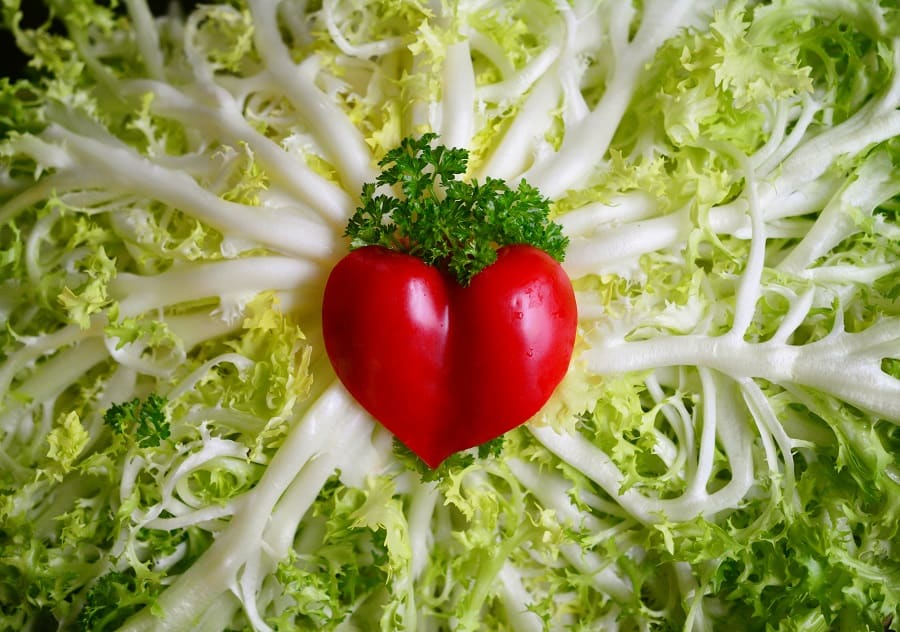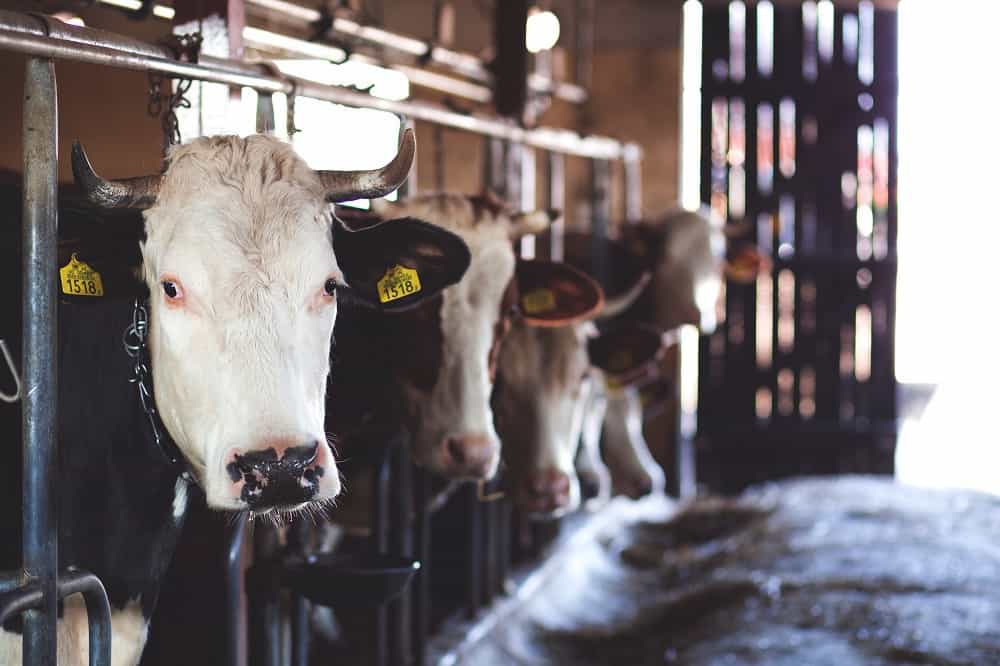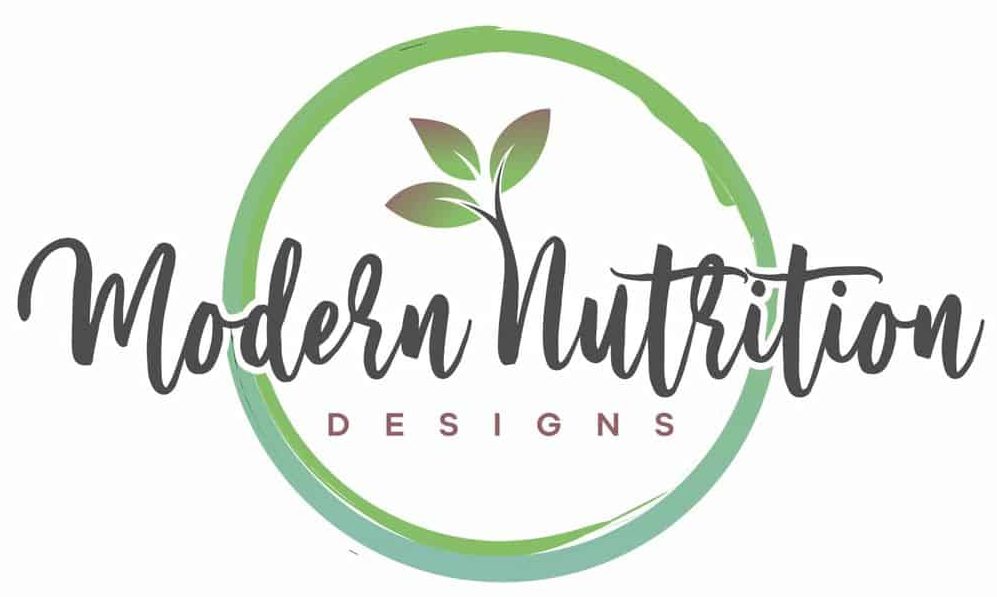The following information provides a wide range of benefits obtained through the use of a plant-based diet. From disease reversal to increased athletic performance, this diet is truly life-altering.
Go ahead and click on my YouTube video below to get a quick overview of these benefits.
1. Reduced risk of chronic disease
Cancer
The power of plant foods and their ability to prevent and fight cancer cells has been known for a number of years. Particularly helpful is that of green veggies and fruits of all kinds. Simply adding an extra serving of green beans or broccoli to your plate on a regular basis could significantly lower your cancer risk.
Cancer is the second-leading cause of death in the U.S. But estimates suggest that as many as a third of cases could be prevented with diet and nutrition alone.
Mayo Clinic
Rates of cancer risk can be exponentially higher for meat-eaters when compared to those who eat less meat, or none at all.
In fact, vegans — those who don’t eat any animal products including fish, dairy or eggs — appeared to have the lowest rates of cancer of any diet. Next in line were vegetarians, who avoid meat but may eat fish or foods that come from animals, such as milk or eggs.
As with the rest of the disease states described in this section, there is a clear continuum from avid meat-eaters to strict plant-based consumers. The further you travel away from the heavy meat-eating side of the continuum, the lower your cancer risk. In turn, the more those animal products are replaced by plant foods the more your cancer risk continues to drop.
It’s not enough to simply cut the animal fare out of your diet. Those foods must be replaced with protective items such as legumes, whole-grains, fruits, and vegetables. So many people make the mistake of replacing harmful animal foods with processed vegan junk food. Instead, to get the full benefit, try to stick with whole plant foods.
In other words, instead of the potato chips, eat the whole potato. And instead of the apple juice, eat the whole apple.
“A new major report from the World Cancer Research Fund and the American Institute for Cancer Research recommends emphasizing plant-based foods to reduce cancer risk.”
Dr. Neal Barnard
The report analyzed data from 51 million people, in an attempt to create a global blueprint for preventing cancer. According to Dr. Barnard, the researchers found ‘strong evidence that consuming both red meat and processed meat increases the risk of colorectal cancer’.
The analysis also revealed that there is evidence that the consumption of dairy products could increase the risk of prostate cancer.
Heart Disease
It seems rather perplexing that America’s, and much of the developed world’s top killer is not only preventable but also reversible with diet and lifestyle changes.
Where is the disconnect?! Studies have proven the link between saturated fat and cholesterol and heart disease several decades ago. Yet we continue to prescribe blood pressure medication and perform bypass surgeries as the primary source of treatment.
Why not treat the disease by removing the cause? Saturated fat and cholesterol are almost exclusively found in animal products. In 1990, Dr. Dean Ornish conducted studies that placed patients with severe heart disease on a low-fat plant-based diet. Within one year researchers recorded the following outcomes:
- A 37.2% reduction in low-density lipoprotein (LDL) cholesterol levels
- A 91% reduction in the frequency of anginal episodes
- Average percent diameter stenosis regressed from 40.0% at baseline to 37.8%
These changes correlated with the degree of lifestyle change. Basically, the more patients adhered to the low-fat vegetarian diet the greater improvements were made.

Later, In 1995 Dr. Caldwell Esselstyn performed a similar study that resulted in the same compelling outcome. Their cholesterol levels returned to normal, their angina (chest pain) resolved, and the blockages in their arteries opened to allow significantly greater blood flow to and from the heart.
If that isn’t enough reason to start eating more whole plant foods, I don’t know what is! Since these studies have been published, more doctors are taking advantage of prescribing the benefits of this lifestyle, but it is a slow-moving process.
Doctors are provided with very little, if any, nutrition education in medical school. They are just as clueless as the general population when it comes to healthy food choices. And most of them suffer from heart disease themselves as a result.
Diabetes
In the first few months of life, our gut is especially leaky to proteins due to the ongoing development of the intestinal tract. Casein, the major protein found in cow’s milk, can be particularly harmful when passing through the under-developed intestinal lining.
When the proteins enter the bloodstream they trigger our immune system defenses, which proceed by attacking our own tissues in an attempt to ward off the invader. Such processes can lead to dangerous autoimmune diseases, such as Type-I diabetes.
Type-I diabetes is one of the most common chronic diseases among children today, according to the NIH. “It is characterized by the selective loss of insulin-producing pancreatic β-cells in genetically susceptible individuals.”
Ultimately, Type 1 diabetes is an autoimmune disease in which our own immune system attacks and destroys the insulin-producing cells of our pancreas. When left untreated it’s deadly, but even with well-managed insulin replacement, it may shorten life expectancy by a decade, explains Dr. Michael Greger.
According to the Physician’s Committee for Responsible Medicine, PCRM, “a Finnish study, reported in the July 30 issue of The New England Journal of Medicine, suggests that in many cases juvenile diabetes may be triggered by an immune-system response to proteins in cow’s milk in infants.
In another Finnish study involving 690 children with type-I diabetes, showed that the risk of developing the disease was doubled by the introduction of bovine milk prior to two months of age. They also determined that this early introduction of cow’s milk was the single most important risk factor in acquiring the disease.
Allergies
According to the American Academy of Allergy, Asthma, and Immunology, cow’s milk is the number one cause of food allergies in children. An estimated half of all children have an allergic response to milk.
Not only is milk one of the top allergens in the world, but it also triggers a multitude of other allergic reactions such as mucous production, upper respiratory infections, chronic coughing, sinus infections, ear infections, colic, and asthma.
Milk allergies differ from lactose intolerance in that the immune system will respond to milk as though it is a foreign invader, and will thus attack its own tissues. Lactose intolerance does not involve the immune system. Instead, lactose intolerance is caused by the inability to break down sugars found in milk due to a lack of lactase enzymes.
Typical allergic reactions to milk may manifest in the following ways:
- Hives
- Stomach upset
- Vomiting
- Bloody stools, especially in infants
- Anaphylaxis, a rare, potentially life-threatening reaction that impairs breathing and can send the body into shock
The only treatment for a milk allergy is the removal of milk and other dairy products from the diet. This includes milk, cheese, chocolate, yogurt, ice cream, and many baked goods and processed foods containing milk isolates.

Asthma
Dairy has recently been linked to the increasing incidence of asthmatic symptoms in children and adults. “Dairy proteins appear to trigger inflammation, apparently by triggering the release of antibodies, which leads to the constriction of the tiny muscles in the airways. By avoiding dairy proteins, the trigger for the attacks is gone,” states Dr. Neal Barnard.
“The protein in cow’s milk can be very unfriendly to the body. The casein and other proteins in cow’s milk have been associated with many medical conditions from asthma, to acne, to type-1 diabetes in children. In my experience, many patients suffering from asthmatic or allergic conditions often report dramatic relief from their symptoms upon omission of dairy products,” states Michael Klaper M.D.
Dr. Michael Greger explains that the increase in dairy and other animal products is correlated with an increase in asthma prevalence. Studies conversely show that an increase in plant foods, such as whole fruits and vegetables is associated with a decrease in asthma prevalence. Tomatoes, oatmeal, adhatoda, and black pepper, and turmeric have actually been used in the successful treatment of asthmatic symptoms.
2. Reduced risk of weight gain and obesity
People following a healthy plant-based, vegan diet have consistently shown to have BMIs below 25. In fact, they tend to have an average BMI between 21 and 23. BMI stands for body mass index. It’s basically your weight to height ratio and is commonly used as a measurement of your body fat.
Anything above a BMI of 25 is considered “overweight”. People consuming a standard Western diet tend to have a BMI well above 25.
What is more interesting is that studies have been done comparing the average BMI of people consuming vegan, vegetarian, pescatarian, lacto-ovo vegetarians, and meat-eaters. Across the board, each study reveals the same pattern. The more plants you eat the lower your BMI. The fewer plants you consume the higher your BMI and overall body fat percentage.
For anyone who is unfamiliar with the types of dietary patterns listed above, pescatarian refers to individuals who consume a vegetarian diet and eat fish regularly. Lacto-ovo vegetarians are vegetarians that also consume dairy and eggs.
So basically, researchers placed each dietary pattern on a continuum from those who consume the greatest amount of plants regularly (vegans) to those who consume the least amount of plants regularly (standard meat-eaters) and found that the closer you get to the vegan side of the continuum you will consistently see a lower average BMI.
Note that these studies controlled for such factors as age, location, smoking habits, and exercise. This makes their findings even more compelling and likely to have a relationship based on causation vs correlation.
Why are predominant plant-eaters consistently revealing lower body fat percentages than those who consume more processed and animal products? There are several reasons why plant-based diets result in healthy weight maintenance:
- Calorie-density: You can eat a much larger quantity of whole plant foods than processed or animal foods before obtaining an equal number of calories from both. For instance, 100 calories of carrots will fill your stomach greater than 100 calories of apple juice or cheese.
- Fiber: Processed and animal foods tend to have zero fiber, while plant foods are notorious for containing substantial amounts of both soluble and insoluble fiber. Some great plant sources of fiber include beans, oats, rice, lentils, nuts, and fruit.
- Water content: Water is found abundant in plant foods while greatly lacking in animal and processed items.
- Nutrient-density: Plant foods have a naturally high consistency of nutrients while processed and animal foods are greatly lacking. When your body is not getting adequate nutrients it sends hunger signals to your brain resulting in greater calorie consumption.
- Compatible with our design: Our body can easily recognize and digest plant foods because we have evolved over thousands of years to perfect this process. Meat and other animal foods have only recently been included in the human diet. Processed foods are the least recognizable since we have only been consuming these in the past few centuries or so.
- Slower rate of absorption: Plant calories require a lot more effort by our metabolic processes to break food down and thus, having a slower rate of nutrient absorption into the bloodstream. Faster rates of nutrient absorption are consistent with weight gain, particularly due to their impact on insulin levels.

3. Reduced dental carries
Dental visits have only been a requirement for our species since the industrial revolution. It is not a natural consequence of the human experience.
As soon as people figured out how to extract specific components from whole foods, such as the sugar from sugar cane, the need for dental intervention was consequentially created. Processed foods are correlated with increased dental cavities.
Conversely, whole plant foods are inversely correlated with cavities. In other words, the more whole, unprocessed plants you eat the fewer trips you will take to the dentist.
This is also seen in civilizations that continue to rely mainly on foods they grow in their own fields and gardens or gather off the local land. The Blue Zones are a great example of this. Such areas as Okinawa, Japan, the Ogliastra region in Sardinia, Ikaria, Greece, Loma Linda, California, and the Nicoya Penninsula in Costa Rica grow live off the land and, as a result, have minimal dental anomalies. Several areas of Africa also show this plant-based benefit.
High consumption of processed foods, such as candies, cookies, cakes, breakfast cereals, salad dressing, spaghetti or pizza sauces, condiments, snack foods, and pastries lead to an array of problems with tooth decay. This was my typical diet growing up. I was very familiar with our local dental office as I was a regular client.
All throughout my youth and up until going plant-based in 2015, I was busy having nearly every one of my teeth drilled on more than one occasion. Meaning the same fillings were replaced over and over because I continued feeding the bacterial overgrowth surrounding my teeth with gummy bears, pizza, ice cream, and candy bars.
Do your kids a favor and teach them healthy habits from the very start. It is so much more difficult to correct those habits later on in adulthood after so much damage has already been done.
4. Improvement in energy and overall feelings of wellness
When you provide your body with the proper fuel needed to carry out its daily metabolic functions you will notice sustained energy throughout the day. Plant foods contain all the necessary nutrients needed for your regular day to day activities, or even for more strenuous activities such as completing triathlons.
The digestive system is necessary for energy, growth, and cell repair, but certain food products require excessive amounts of effort to digest and thus are more draining.
Animal-based protein is especially difficult to digest. More stomach acid secretion, pancreatic enzyme secretion, and bile synthesis are required to breakdown animal protein because they are more acidic. This means more digestive complexity and digestive energy are required.
On the other hand, plant-based protein is much easier to digest and does not put your digestive system through added energy expenditure. Naturally occurring plant foods are also filled with complex carbohydrates which play an important role in energy metabolism. –OneGreenPlanet.Org
In my early stages of battling celiac disease, I had tremendous difficulty with getting out of bed in the morning and completing normal day-to-day tasks, let alone carrying on a job or finishing my school work. Removing gluten from my diet simply was not enough to bring my body back to a state of equilibrium.
My energy continued lagging after about 5 to 6 years on a gluten-free diet. My doctors insisted I just needed more time to recover. All while the dietician was advising me to eat cocoa puffs, skittles, and snickers bars (due to their gluten-free status).
It wasn’t until 2015 when I began researching the benefits of a plant-based lifestyle that I realized this was the answer I had been searching for.
And sure enough, 5 years on the diet and I am working a full-time job, running a nutrition blog, exercising regularly, raising an infant, and completing my next degree in dietetics and nutrition. This has all been possible thanks to the energy this way of life and dietary pattern has provided for me and my family.
I have also noticed an overall improvement in my state of wellness. I hear people talk about this all the time in plant-based forums. You truly have no clue how much your body is lacking until you get rid of the junk food and start thriving on plants.
It seems that everyone suffers from chronic fatigue and overall malaise. It’s easy to begin thinking that people are simply inherently sluggish. Turns out, that is not the case at all. We are products of our artificially engineered environment.

Remove the harmful processed and animal foods and you remove the fatigue.
5. Improvement of sleep quality and duration
As many as one in three Americans are chronically sleep-deprived getting less than the recommended 7-8 hours. Sleep deprivation has been tied to obesity, elevated blood pressure, and Alzheimer’s disease.
When transitioning to a plant-based diet one rarely has improved sleep quality in mind as the main motivation. I was pleasantly surprised to encounter this benefit after eating plant-based for only several months. But why on Earth would diet change play such a big role in sleep quality and duration?
According to the Physician’s Committee for Responsible Medicine, complex carbohydrates stimulate the release of serotonin—a neurotransmitter that calms your brain and helps you sleep. Researchers explain how building your dinner around starchy foods, like pasta, rice, and potatoes will help you doze off and stay asleep through the night.
On the other hand, it seems that foods containing high amounts of protein keep people up at night. High-protein foods block the brain’s ability to produce serotonin. Because high-protein foods contain more amino acids, tryptophan—the amino acid that eventually turns into serotonin—is crowded out of the brain. As a result, high-protein foods will leave you feeling alert.
High-protein plant-based foods, like tofu, beans, and lentils, are very nutritious. But if you’re having trouble sleeping, try eating these foods earlier in the day. You’ll feel more alert in the daytime while favoring carbohydrates later on can help you rest at night.
6. Improvements to mental health
If plants can help to reverse heart disease by clearing out your arteries, it’s safe to assume that there would also be increased blood flow to the brain given the same dietary intervention.
Recent research shows vegetarians had fewer symptoms of depression, anxiety, stress, and mood disturbance than omnivores. Higher levels of antioxidants in the blood from plant sources have been associated with a significantly lower risk of depression, and lower suicide rates have been tied to higher consumption of fruit, vegetables, nuts, and soy and a lower intake of dairy, meat, and fish.
Animal products such as chicken, beef, and eggs have been shown to produce significant bouts of inflammation in the brain and throughout other areas of the body.
Toxoplasma brain parasites from meat have been linked to schizophrenia and bipolar disorder. Glycotoxins—found primarily in chicken, pork, beef, and fish—increase the risk of dementia and Alzheimer’s.
Although the fish industry would like us to believe that seafood is needed for proper brain health, research shows this is simply not the case. Yes, we do require omega-3s. We do NOT, however, require this source from fish.
We can get our healthy omega-3s from the same source the fish obtain it from plants! Fish get their healthy fats from sea vegetables such as algae and nori, but you can also obtain healthy fats from the following plant sources:
- chia seeds
- Brussels sprouts
- walnuts
- hemp seeds
- flax seeds
- soybeans
- pumpkin seeds
Many plant foods have been shown to reduce symptoms of mental disorders such as depression, social anxiety, ADHD, and bipolar disorder. Some examples of these foods are saffron, green tea, seeds, and turmeric.
Overall, it appears there is an overwhelming amount of evidence revealing the harmful effects animal products have on mental health, while plant foods seem to have preventative and beneficial effects.

7. This diet saves you money
Reducing your grocery bills
It has been shown that you can actually live off plant-based foods for less than $4.00 per day! The same resource showed that typical meat-centered meals can cost over $10.00 per day on average.
The majority of calories in a plant-based diet come from beans, whole grains, and other starches, while meat provides about a third of the calories in a standard diet. Sirloin steak costs $1 per 100 calories, while pinto beans cost $0.05 per 100 calories.
As someone who has lived both lifestyles, the standard diet and the plant-based diet. I can provide my before and after comparison to the changes I saw in my grocery spending habits.
On a typical animal and processed food-based diet, my monthly grocery bill was approximately $100 more expensive than on my current plant-based diet.
The significant increase in spending on the standard Western diet is likely due to the incorporation of animal products. These tend to be the most expensive item in the grocery store.
There are also a lot of tricks I have learned over the years when it comes to finding the most low-cost ways to live on a whole-foods plant-based diet, as well. If you’re interested in learning more about these, click here to see my post titled 40 Clever Ways to Save Money on a Plant-based Diet.
With that said, I haven’t always been so savvy with my plant-based budgeting. There is definitely a wrong way to approach this way of living.
Eating plant-based can, in fact, become costly if you are making a few mistakes. The largest mistake being trading standard junk-food for costly vegan junk-food. It took me a long time to learn that “organic” and “gluten-free” are not synonymous with “health”.
Just because a product is vegan, certainly does not make it healthy. Potato chips are vegan. Soda is technically vegan. And the vegan food companies are profiting off our confusion with this 21st-century fad.
Yes, I am technically a vegan, but I do not eat vegan junk. Frozen vegan dinners, ready-made soups, pastries, cakes, protein bars, breakfast cereals, cookies, chips, candy, etc. These are all junk-foods with slightly different labels.
Eating a plant-based diet that is not a “whole-foods” plant-based diet can be extremely costly. Processed “health-food” is far from healthy, and is very expensive. Many people are unaware that marketing claims such as “all-natural” or “immunity-booster” are completely unregulated and solely exist to mislead the consumer.
Reduction in medical bills
It’s important for consumers to see the bigger picture.
Healthful eating leads to increased well being, fewer sick days, better stamina, improved immune function, and vastly reduced risk of disease. Furthermore, it means reduced health care costs and more joy-filled lives.
Brenda Davis RD
Animal and processed foods are most strongly linked with being overweight, obesity and chronic diseases such as heart disease, hypertension, diabetes, and even some cancers. You will be saving yourself and likely your family thousands of dollars just by making more healthful food choices at the grocery store.
Vegetarians have a 32 percent lower risk of being hospitalized for heart disease because of lower body mass indices, lower LDL cholesterol, and lower blood pressure than people who eat animal-centered diets.

The average cost of a one-night hospital stay in 2014 was $4,293. Far more than anything “extra” you might spend on a whole year’s worth of whole, plant-based food!
8. Better for the environment
As I mentioned earlier, most Americans consume meat 3 to 4 times per day.
Whether we discuss the increased deforestation that continues from factory farming, the over-abundance of greenhouse admissions, or the harmful waste run-off that pollutes our freshwater supply; there is nothing sustainable about the majority of the planet consuming animals up to 4 times per day.
Feeding the world a more plant-based diet would solve a number of the current issues brought about by factory farming. For instance, instead of destroying more forests to create more crops to feed to livestock, we could simply use the existing fields to grow crops for the human population.
Shifting away from animal-based foods could not only add up to 49% of the global food supply without expanding croplands; but would also significantly reduce carbon emissions and waste byproducts that end up in our oceans and as seafood byproducts
Instead of consuming our minerals and some vitamins from secondary sources, (animals) we could go straight to the source and grow our own plants.
If everyone gave up their meat and dairy just a few times per week, it would significantly reduce our carbon footprint. In fact, in one year, animal husbandry creates as much carbon emissions as the entire transportation sector.
9. Vegan diets save animals
This one is pretty self-explanatory. But the statistics are quite compelling
More than 200 million animals are killed for food around the world every day – just on land. That comes out to 72 billion land animals killed for food around the world every year. Including wild-caught and farmed fishes, we get a daily total closer to 3 billion animals killed.
These numbers are so overwhelming that many people feel that going vegan would make little to no difference, but they are very wrong. After just one year of switching to a plant-based diet, it is estimated that you will save 100 lives on average.
Now times that number by your age. A lifetime of eating plants instead of animals would save thousands of lives. That is certainly a profound impact.
10. Improvement in stamina & athletic performance

As mentioned in the ‘Heart Disease’ section above, a plant-based diet keeps your heart strong by reversing plaque, bringing down blood pressure and cholesterol, and reducing weight. These are all important for keeping your blood flowing with ease to your muscles while they are hard at work.
Animal products also have been shown to induce an inflammatory response throughout the body. This is important when taking recovery and performance into account. Athletes require daily training, which also necessitates fast recovery.
Plants have been shown to provide anti-inflammatory properties which allow for a speedy recovery from intense workouts or sports-related injuries.
Reduced body fat is another aspect that assists in athletic performance. Plants are naturally low in saturated fats while completely lacking in cholesterol. Plant foods are also high in fiber and water content which also have a profound effect on weight loss and maintenance.
People following a plant-based diet tend to have increased blood flow to their muscles and arteries. This is likely due to less plaque build-up in the arteries, coupled with lower blood viscosity (thickness/stickiness of blood). Ultimately, these factors provide a more efficient flow of oxygen to the areas where the body requires it most during exercise.
Arterial flexibility is another cardiovascular measurement for the ease of blood flow. One study found that even a single high-fat meal, including sausage and egg McMuffins, impaired arterial function for several hours.
Plant-based diets also contain more antioxidants which reduce the number of free radicals in your body. Fewer free radicals can lead to significantly shorter recovery times. Animal foods are completely devoid of antioxidants.
11. Providing the most nutrient-rich diet for your whole family
A plant-based diet is fully equipped to nourish humans throughout our lifespan. Many people were concerned when they first learned I was raising my baby girl vegan.
There were many well-meaning, but utterly misinformed friends and family members urging me to change my mind to at least allow meat, fish, and cow’s milk into my daughter’s diet.
After rigorous bouts of my own research, I came to the conclusion that a plant-based, vegan diet was the best thing I could possibly teach my child.

Every member of your family, regardless of their age, can thrive on a healthy whole foods diet. This lifestyle is much more easily sustainable when everyone in your home environment is on board. You can support each other and keep your environment clean of toxic foods.
This way of living has brought my family together in a very special way. It is important to share the things that are inherently foundational to your existence with those that you love. Embracing a healthy lifestyle together will ensure that you grow and spend many more years enjoying your time together.
Unlike the standard Western fare, a plant-based diet will enable your family to live free of common diseases of affluence such as heart disease, stroke, diabetes, obesity, and cancer. These illnesses can place devastating financial and emotional hardship on you and your loved ones.
I’m certainly not suggesting that you are guaranteed a clean bill of health for as long as you live if you eat this diet, I am simply stating that we do not have to grow old with disease. We can age gracefully with health and vigor.
12. Providing a clean way of eating
Hormone therapy in livestock
Given the giant livestock boom created in response to the 20th century Western standard of living, it has brought about a number of concerns for the implications on human health. Meat and dairy used to be added to meals as condiments or flavorings once per day, or perhaps as little as a few times per week.
Currently, the average American is consuming meat 3 to 4 times per day, and eating dairy throughout. This has become an overwhelmingly unsustainable demand on our planet and our health.
In order to produce such high quantities of live food supplies, the industry has had to get creative with their production tactics.
According to a study supported by the NIH, veterinary drugs including antibiotics, growth hormones, and antihelminths (anti-worms) are used for disease control and growth promotion of livestock animals. However, concerns regarding the safety of livestock products and the prevalence of antimicrobial resistance have grown according to the increased use of veterinary drugs.
The study reviews each hormone involved in the hormone therapy provided to livestock animals. Theses include estradiol, progesterone, testosterone, and three synthetic hormones that bind to each of our hormone receptors. Researchers concluded that there is sufficient evidence for each of the hormonal therapies to produce carcinogenicity in either experimental animals, humans or both.
In other words, there is likely a direct relationship between livestock hormone therapy and its ability to cause cancer in humans.
Antibiotic use in livestock

Antibiotics are used for two main purposes in the meat and dairy industry.
- They act as a growth hormone when given in low doses
- Disease control and prevention
Issues with antibiotic resistance
The same study described in the hormone section above also reviewed the human health implications related to antibiotic use in livestock. The study explains that one of the greatest concerns about using antibiotics on all livestock as a preventative measure is the likely outcome of increasing bacteria-resistant strains.
This is of great concern for the future of everyone’s health. Scientists have proven the reduced efficacy in commonly used antibiotic drugs such as penicillin since the dramatic use of these drugs in livestock.
Some authorities suggest reducing the meat, egg, and dairy industry’s use of antibiotics by only allowing their administering the drugs on animals that present with disease symptoms. This would get rid of all the preventative antibiotic use, which poses other issues. The obvious problem being that disease is much harder to contain and mitigate after it has already begun, as opposed to standardized prevention tactics.
Effects on the human microbiome
The other major issue surrounding the regular use of antibiotics on animals raised for food is the clear outcome of wiping out the natural flora in the human gut. The microbiome is still greatly unknown in its design and function, but what we have determined is that it is fundamental to human health.
Our microbiota make some of our vitamins and provide most of the serotonin for our brain. It is also involved in our immune system functionality and the further breakdown and absorption of our nutrients.
Living in an environment where there is a constant overuse of antibiotics places a number of foreseeable and unidentifiable implications on the health of animals and humans alike.
Consuming a diet of whole plant foods instead of antibiotic rich animal products will greatly improve your health and the health of the rest of the animals we share the planet with.
Watch my YouTube video below for more on healing the gut with a plant-based diet. It is full of helpful tricks you may implement today!
Karli Jackson

